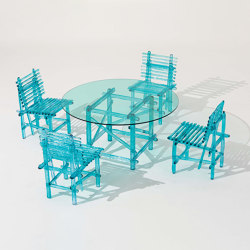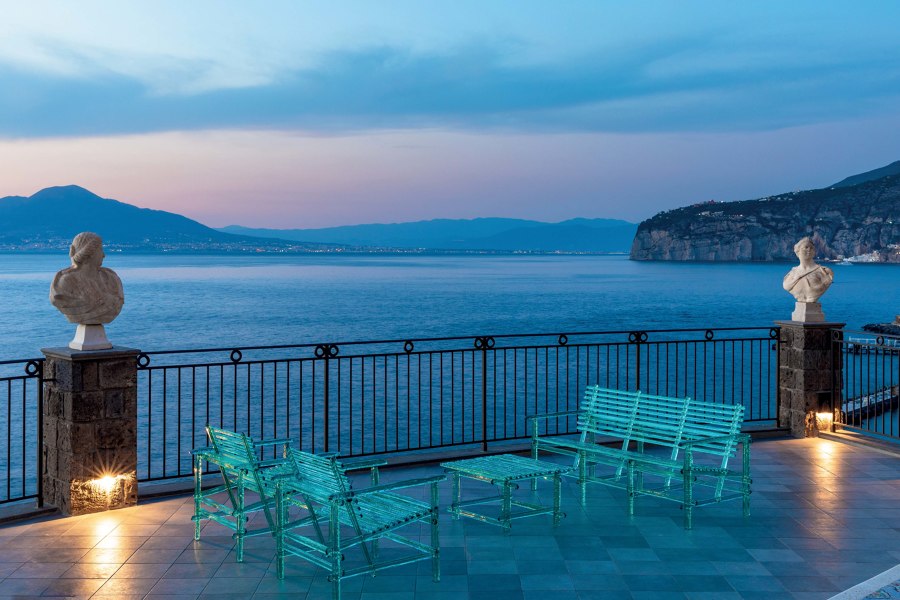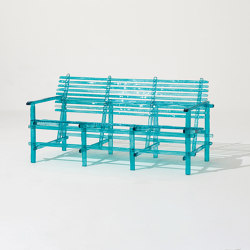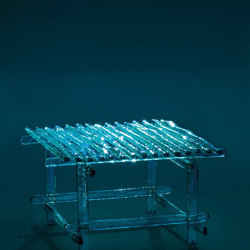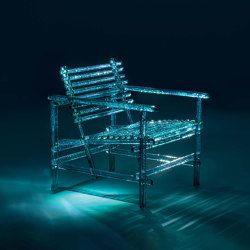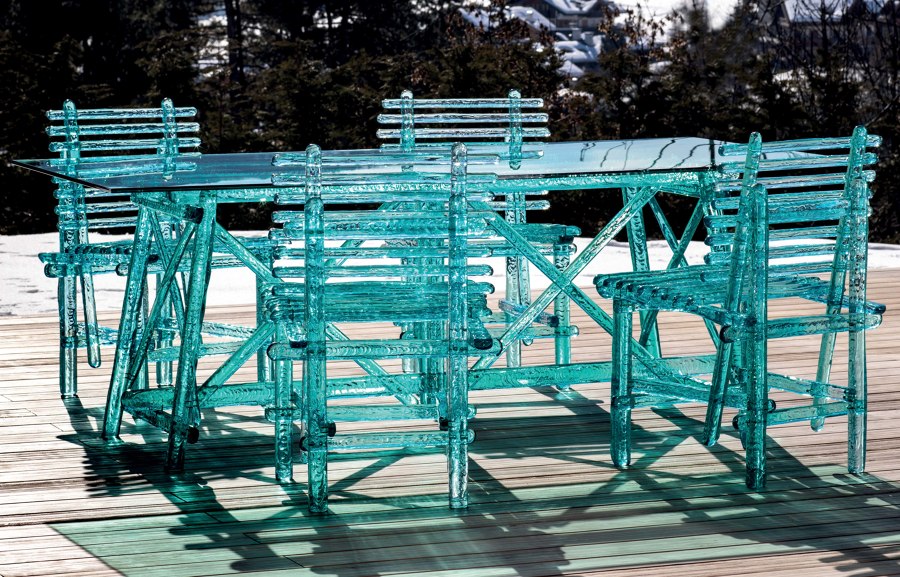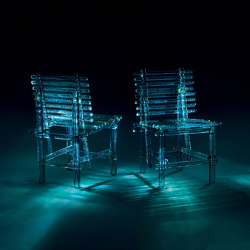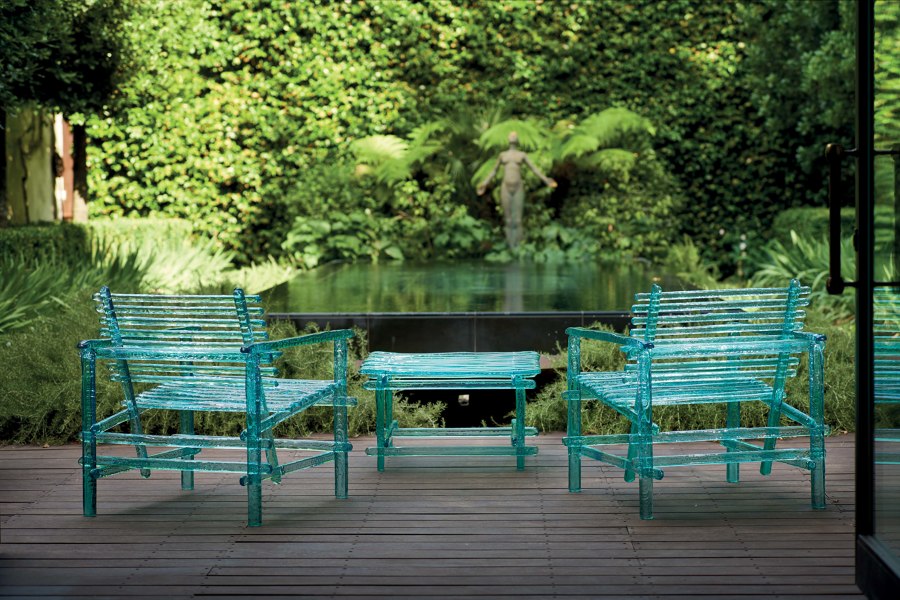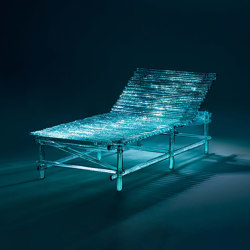In defence of plastic: A'mare collection from Edra
Storia del Marchio di Harriet Thorpe
Perignano (Pisa), Italia
28.11.22
Far from single-use, Jacopo Foggini's A'mare collection for Edra redefines the value and moral use of plastic, celebrating its integrity, longevity and yes, even its beauty.
Edra’s A’mare collection includes tables, chairs, armchairs, bench and loungers; all made of eye-catching, translucent, multi-tonal recycled polycarbonate rods
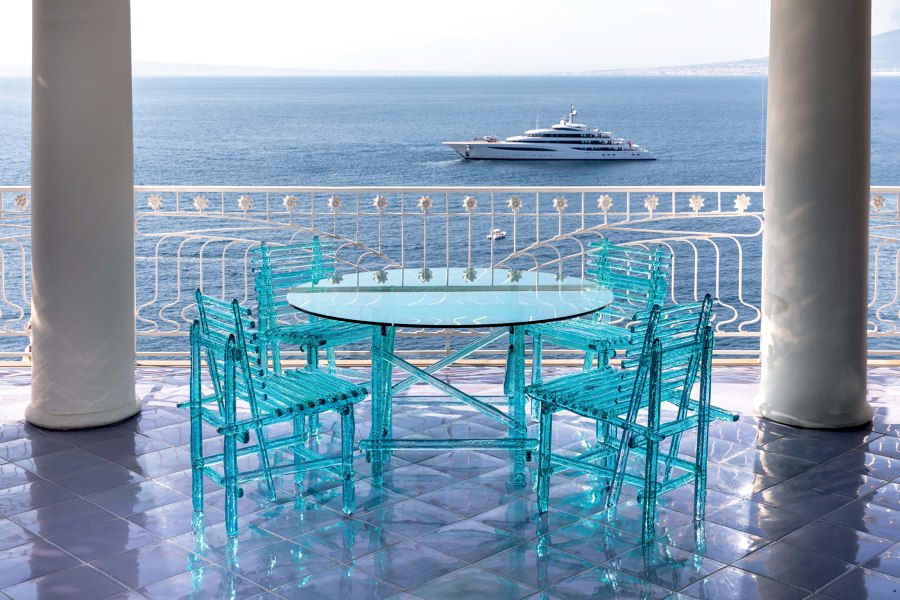
Edra’s A’mare collection includes tables, chairs, armchairs, bench and loungers; all made of eye-catching, translucent, multi-tonal recycled polycarbonate rods
×In today’s climate, it goes without saying that all material consumption should be carefully considered. For any project, materials should be selected with longevity in mind – that can manifest in many ways, including investing in materials with durable properties or in iconic pieces that will be treasured for generations. Italian brand Edra combines both within its approach to design.
The furniture is reflective of water and light – ideal for bringing magic to a poolside terrace or brightening up a darker interior or patio at dusk
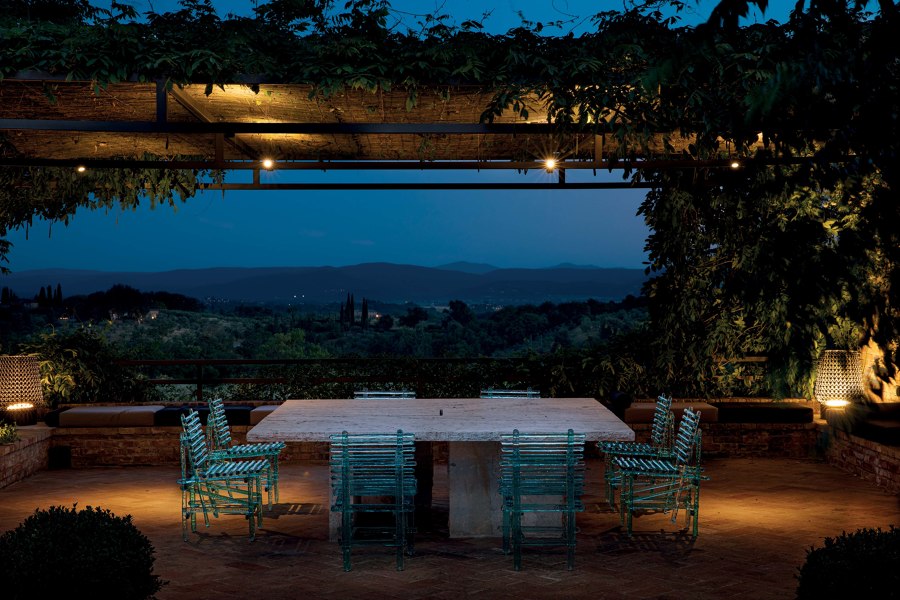
The furniture is reflective of water and light – ideal for bringing magic to a poolside terrace or brightening up a darker interior or patio at dusk
×Edra’s very first outdoor collection designed by Jacopo Foggini titled A’mare represents these values. Made of turquoise recycled polycarbonate, the collection challenges contemporary notions of the material – suggesting how plastic might be better valued by our society; how its aesthetic qualities of light reflection can be admired and its functional durability for outdoor use can be relied on for modern life.
‘It all began when Valerio Mazzei picked up a drop of pure material that had been sitting on my desk’
The adventurous spirit of Foggini has been guiding the brand since 2009, when he joined the company as a designer. His works are known for their playful artistry of materials, colour and light and cross scales from chairs to architecture. Foggini has always been fascinated by the versatility and chromatic nature of plastic: 'I was born into a family of industrialists whose business was processing plastics for the automotive industry. My mother is a sculptor. I am the synthesis of these two very different worlds,' he says.
The A’mare collection has been designed to evoke feelings of relaxation and comfort through colour, form and handmade elements
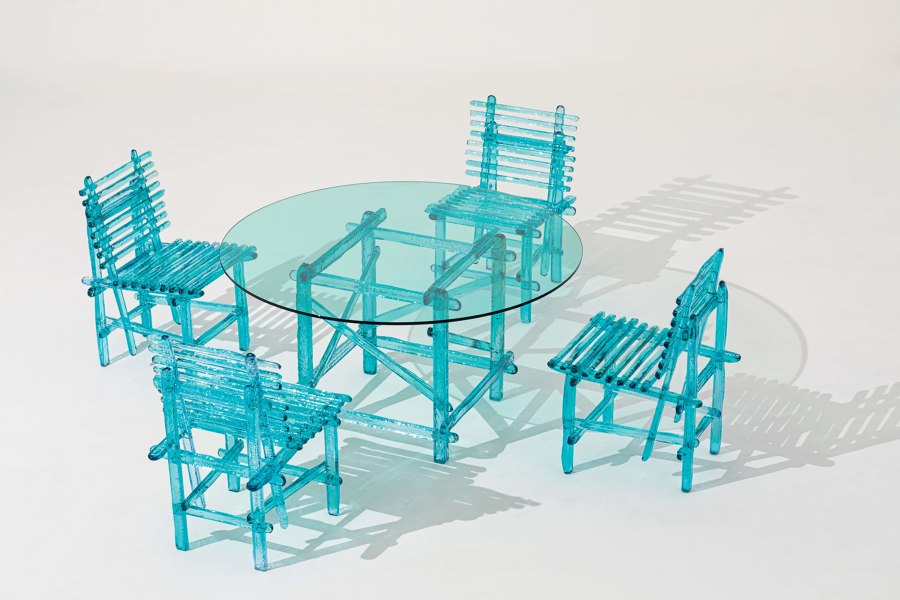
The A’mare collection has been designed to evoke feelings of relaxation and comfort through colour, form and handmade elements
×Industrial craft
Foggini’s handmade approach to industrial design began in 90s Milan when he created a series of lighting globes for his friend Romeo Gigli’s fashion show. Soon his work was lighting up an exhibition at Fuorisalone and later being collected by art museums. Now, in his latest collection, A’mare, he seeks to ‘solidify water into precious objects’ by hand-casting recycled polycarbonate rods to form Edra’s first outdoor collection of tables, chairs, armchairs, a bench and lounger.
‘It all began when Valerio Mazzei picked up a drop of pure material that had been sitting on my desk,’ says Foggini. ‘Suddenly it no longer seemed to be made of solid matter, but looked like a drop of crystallised water. A new language was developed to create a family of non-designed objects, whose strength lay in the gesture.'
The functionality of plastic furniture for outdoor space should not be underestimated. The A’mare collection is durable in all types of weather while also boasting iconic looks
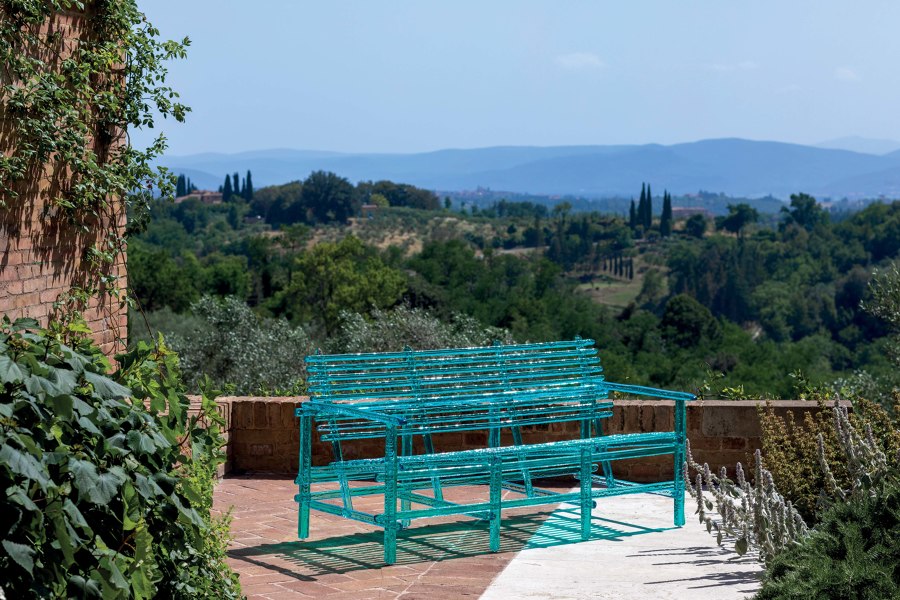
The functionality of plastic furniture for outdoor space should not be underestimated. The A’mare collection is durable in all types of weather while also boasting iconic looks
×Plastic magic
The polycarbonate has the visual qualities of glass, reflective and translucent, yet is much more practical for outdoors, being durable and lightweight. The elastic, softly curving nature of the design is comfortable – ideal for a poolside terrace, as when surrounded by water, the furniture disappears and, when bathed in sunlight, it lights up in infinite shades of blue.
'I want to give it a new soul and separate it from the perception in industry that it is used only to create uninteresting things'
'What I convey through my work is that this material can be used to make beautiful, precious, unique things. I want to give it a new soul and separate it from the perception in industry that it is used only to create uninteresting things. So I transform it into sculptures, armchairs, chairs and lamps,' says Foggini.
An enticing destination for a relaxing afternoon: Each piece of furniture performs as a light sculpture in nature, capturing the light and colour of its immediate environment
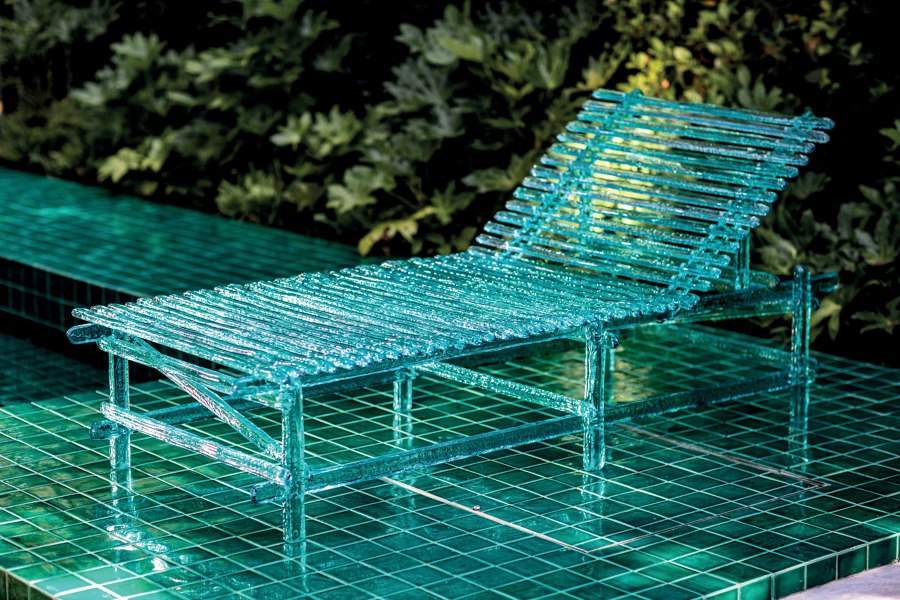
An enticing destination for a relaxing afternoon: Each piece of furniture performs as a light sculpture in nature, capturing the light and colour of its immediate environment
×Foggini’s other products for Edra show a similar mastery of material spanning ancient crafts to modern industrial mastery. Take the vein-streaked, irregularly sized Cicladi coffee tables, made of Tuscan alabaster stone. Or the swivelling Ella chair that wraps up its user in transparent polycarbonate petals; the Gina chair made of gold or amber polycarbonate, evocative of embroidery; or the nest-like Margherita armchair.
Considered value
It’s impossible to ignore the impact that single-use plastic is having on our environment today, yet Foggini sees this as an important reason to keep challenging the material's sustainability – by working with recycled plastic only and deeply considering how the material is used through a careful design process.
In typical Foggini fashion, the name A’mare is a play on words; a combination of ‘a mare’ (on the sea) and ‘amare’ (to love)
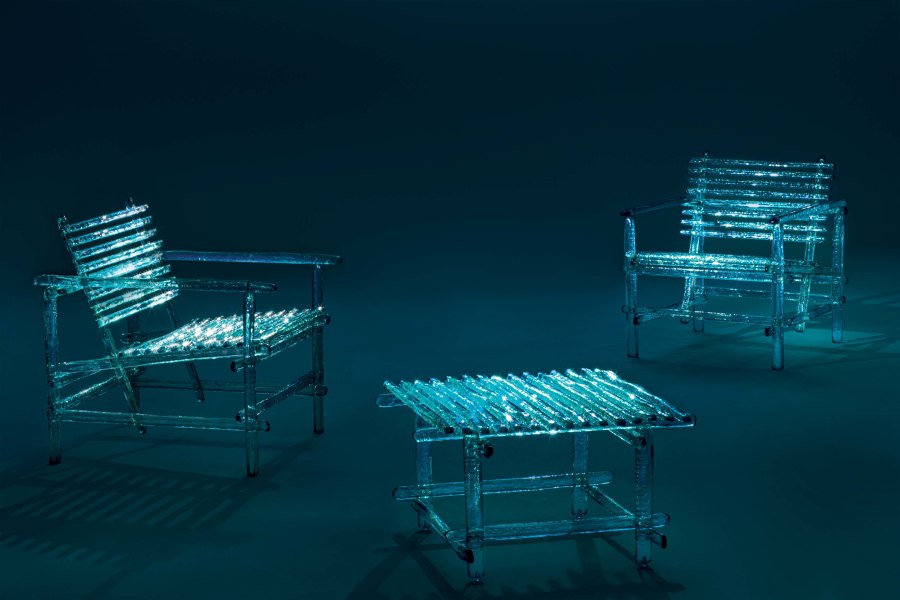
In typical Foggini fashion, the name A’mare is a play on words; a combination of ‘a mare’ (on the sea) and ‘amare’ (to love)
×'It’s nice to think that products and installations had a previous life as a helmet or maybe a toy,' he says. 'Plastics have been demonised in recent years, but I would actually approach the issue of sustainability differently: it is humankind’s misuse of plastics that makes them so polluting, in themselves they have changed everyone’s lives, most of the time for the better.'
Whichever material he works with, Foggini places a high value on it, and the resulting object is designed to be admired, cherished and treasured for life. 'I think that today, at a time when the certainties dictated by globalisation and the consumerist frenzy are being challenged, the return to a local, more artisanal dimension is both necessary and inevitable.'
© Architonic
Head to the Architonic Magazine for more insights on the latest products, trends and practices in architecture and design.


